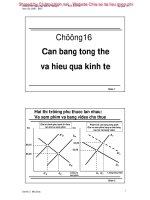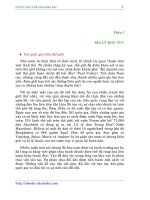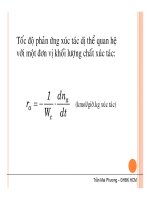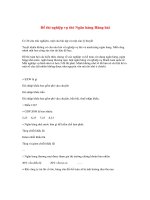The eustace diamonds
Bạn đang xem bản rút gọn của tài liệu. Xem và tải ngay bản đầy đủ của tài liệu tại đây (2.61 MB, 702 trang )
TheProjectGutenbergeBook,
TheEustaceDiamonds,
byAnthonyTrollope
ThiseBookisfortheuseofanyoneanywhereatnocostandwith
almostnorestrictionswhatsoever.Youmaycopyit,giveitawayor
re-useitunderthetermsoftheProjectGutenbergLicenseincluded
withthiseBookoronlineatwww.gutenberg.org
Title:TheEustaceDiamonds
Author:AnthonyTrollope
ReleaseDate:April22,2003[eBook#7381]
Mostrecentlyupdated:September8,2012
Language:English
Charactersetencoding:ISO-8859-1
***START OF THE PROJECT GUTENBERG EBOOK THE EUSTACE
DIAMONDS***
E-textpreparedby
AnneSoulard,CharlesAldarondo,
TiffanyVergon,JohnR.Bilderback,
andtheProjectGutenbergOnlineDistributedProofreadingTeam
()
andrevisedbyJosephE.Loewenstein,M.D.
HTMLversionpreparedbyJosephE.Loewenstein,M.D.
THEEUSTACEDIAMONDS
by
ANTHONYTROLLOPE
Firstpublishedinserialforminthe
FortnightlyReviewfromJuly,1871,toFebruary,1873,
andinbookformin1872
CONTENTS
VolumeI
I. LizzieGreystock
II. LadyEustace
III. LucyMorris
IV. FrankGreystock
V. TheEustaceNecklace
VI. LadyLinlithgow'sMission
VII. Mr.Burke'sSpeeches
VIII. TheConqueringHeroComes
ShowingWhattheMissFawnsSaid,
IX.
andWhatMrs.HittawayThought
X. LizzieandHerLover
XI. LordFawnatHisOffice
XII. "IOnlyThoughtofIt"
XIII. ShowingWhatFrankGreystockDid
XIV. "Doan'tThouMarryforMunny"
XV. "I'llGiveYouaHundredGuineaBrooch"
XVI. CertainlyanHeirloom
XVII. TheDiamondsAreSeeninPublic
XVIII. "AndIHaveNothingtoGive"
XIX. "AsMyBrother"
XX. TheDiamondsBecomeTroublesome
XXI. "Ianthe'sSoul"
LadyEustaceProcuresaPonyfor
XXII.
theUseofHerCousin
XXIII. FrankGreystock'sFirstVisittoPortray
ShowingWhatFrankGreystockThought
XXIV.
AboutMarriage
XXV. Mr.Dove'sOpinion
XXVI. Mr.GowranIsVeryFunny
XXVII. LucyMorrisMisbehaves
XXVIII. Mr.DoveinHisChambers
XXIX. "IHadBetterGoAway"
XXX. Mr.Greystock'sTroubles
XXXI. FrankGreystock'sSecondVisittoPortray
XXXII. Mr.andMrs.HittawayinScotland
XXXIII. "ItWon'tBeTrue"
XXXIV. LadyLinlithgowatHome
XXXV. TooBadforSympathy
XXXVI. Lizzie'sGuests
XXXVII. Lizzie'sFirstDay
XXXVIII. Nappie'sGreyHorse
VolumeII
XXXIX. SirGriffinTakesanUnfairAdvantage
XL. "YouAreNotAngry?"
XLI. "LikewisetheBearsinCouplesAgree"
XLII. SundayMorning
XLIII. LifeatPortray
XLIV. AMidnightAdventure
XLV. TheJourneytoLondon
XLVI. LucyMorrisinBrookStreet
XLVII. MatchingPriory
XLVIII. Lizzie'sCondition
XLIX. BunfitandGager
L. InHertfordStreet
LI. Confidence
LII. Mrs.CarbuncleGoestotheTheatre
LIII. Lizzie'sSick-Room
LIV. "ISupposeIMaySayaWord"
LV. QuintsorSemitenths
LVI. Job'sComforters
LVII. HumptyDumpty
LVIII. "TheFiddlewithOneString"
LIX. Mr.GowranUpinLondon
LX. "LetItBeAsThoughItHadNeverBeen"
LXI. Lizzie'sGreatFriend
LXII. "YouKnowWhereMyHeartIs"
LXIII. TheCorsairIsAfraid
LXIV. Lizzie'sLastScheme
LXV. Tribute
LXVI. TheAspirationsofMr.Emilius
LXVII. TheEyeofthePublic
LXVIII. TheMajor
LXIX. "ICannotDoIt"
LXX. Alas!
LXXI. LizzieIsThreatenedwiththeTreadmill
LXXII. LizzieTriumphs
LXXIII. Lizzie'sLastLover
LXXIV. LizzieatthePolice-Court
LXXV. LordGeorgeGivesHisReasons
LXXVI. LizzieReturnstoScotland
LXXVII. TheStoryofLucyMorrisIsConcluded
LXXVIII. TheTrial
LXXIX. OnceMoreatPortray
LXXX. WhatWasSaidAboutItAllatMatching
VOLUMEI
CHAPTERI
LizzieGreystock
It was admitted by all her friends, and also by her enemies,—who were in
truththemorenumerousandactivebodyofthetwo,—thatLizzieGreystockhad
doneverywellwithherself.WewilltellthestoryofLizzieGreystockfromthe
beginning, but we will not dwell over it at great length, as we might do if we
loved her. She was the only child of old Admiral Greystock, who in the latter
years of his life was much perplexed by the possession of a daughter. The
admiralwasamanwholikedwhist,wine,—andwickednessingeneralwemay
perhapssay,andwhoseambitionitwastoliveeverydayofhislifeuptotheend
of it. People say that he succeeded, and that the whist, wine, and wickedness
werethere,atthesideevenofhisdyingbed.Hehadnoparticularfortune,and
yethisdaughter,whenshewaslittlemorethanachild,wentabouteverywhere
with jewels on her fingers, and red gems hanging round her neck, and yellow
gemspendentfromherears,andwhitegemsshininginherblackhair.Shewas
hardlynineteenwhenherfatherdiedandshewastakenhomebythatdreadful
oldtermagant,heraunt,LadyLinlithgow.Lizziewouldhavesoonergonetoany
other friend or relative, had there been any other friend or relative to take her
possessed of a house in town. Her uncle, Dean Greystock, of Bobsborough,
wouldhavehadher,andamoregood-naturedoldsoulthanthedean'swifedid
not exist,—and there were three pleasant, good-tempered girls in the deanery,
who had made various little efforts at friendship with their cousin Lizzie; but
LizziehadhigherideasforherselfthanlifeinthedeaneryatBobsborough.She
hatedLadyLinlithgow.Duringherfather'slifetime,whenshehopedtobeable
to settle herself before his death, she was not in the habit of concealing her
hatredforLadyLinlithgow.LadyLinlithgowwasnotindeedamiableoreasily
managed. But when the admiral died, Lizzie did not hesitate for a moment in
goingtotheold"vulturess,"asshewasinthehabitofcallingthecountessinher
occasionalcorrespondencewiththegirlsatBobsborough.
The admiral died greatly in debt;—so much so that it was a marvel how
tradesmen had trusted him. There was literally nothing left for anybody,—and
Messrs.HarterandBenjaminofOldBondStreetcondescendedtocallatLady
Linlithgow's house in Brook Street, and to beg that the jewels supplied during
the last twelve months might be returned. Lizzie protested that there were no
jewels,—nothingtosignify,nothingworthrestoring.LadyLinlithgowhadseen
the diamonds, and demanded an explanation. They had been "parted with," by
the admiral's orders,—so said Lizzie,—for the payment of other debts. Of this
LadyLinlithgowdidnotbelieveaword,butshecouldnotgetatanyexacttruth.
Atthatmomentthejewelswereinverytruthpawnedformoneywhichhadbeen
necessaryforLizzie'sneeds.Certainthingsmustbepaidfor,—one'sownmaid
forinstance;andonemusthavesomemoneyinone'spocketforrailway-trains
and little knick-knacks which cannot be had on credit. Lizzie when she was
nineteen knew how to do without money as well as most girls; but there were
callswhichshecouldnotwithstand,debtswhichevenshemustpay.
She did not, however, drop her acquaintance with Messrs. Harter and
Benjamin.Beforeherfatherhadbeendeadeightmonths,shewasclosetedwith
Mr.Benjamin,transactingalittlebusinesswithhim.Shehadcometohim,she
told him, the moment she was of age, and was willing to make herself
responsible for the debt, signing any bill, note, or document which the firm
mightdemandfromher,tothateffect.Ofcourseshehadnothingofherown,and
never would have anything. That Mr. Benjamin knew. As for payment of the
debtbyLadyLinlithgow,whoforacountesswasaspoorasJob,Mr.Benjamin,
she was quite sure, did not expect anything of the kind. But— Then Lizzie
paused, and Mr. Benjamin, with the sweetest and wittiest of smiles, suggested
that perhaps Miss Greystock was going to be married. Lizzie, with a pretty
maiden blush, admitted that such a catastrophe was probable. She had been
asked in marriage by Sir Florian Eustace. Now Mr. Benjamin knew, as all the
worldknew,thatSirFlorianEustacewasaveryrichmanindeed;amaninno
degreeembarrassed,andwhocouldpayanyamountofjewellers'billsforwhich
claim might be made upon him. Well; what did Miss Greystock want? Mr.
BenjamindidnotsupposethatMissGreystockwasactuatedsimplybyadesire
tohaveheroldbillspaidbyherfuturehusband.MissGreystockwantedaloan
sufficient to take the jewels out of pawn. She would then make herself
responsibleforthefullamountdue.Mr.Benjaminsaidthathewouldmakeafew
inquiries."Butyouwon'tbetrayme,"saidLizzie,"forthematchmightbeoff."
Mr.Benjaminpromisedtobemorethancautious.
There was not so much of falsehood as might have been expected in the
statementwhichLizzieGreystockmadetothejeweller.Itwasnottruethatshe
wasofage,andthereforenofuturehusbandwouldbelegallyliableforanydebt
whichshemightthencontract.AnditwasnottruethatSirFlorianEustacehad
asked her in marriage. Those two little blemishes in her statement must be
admitted.ButitwastruethatSirFlorianwasatherfeet,andthatbyaproperuse
of her various charms,—the pawned jewels included,—she might bring him to
anoffer.Mr.Benjaminmadehisinquiries,andaccededtotheproposal.Hedid
nottellMissGreystockthatshehadliedtohiminthatmatterofherage,though
he had discovered the lie. Sir Florian would no doubt pay the bill for his wife
withoutanyargumentsastothelegalityoftheclaim.Fromsuchinformationas
Mr.Benjamincouldacquirehethoughtthattherewouldbeamarriage,andthat
thespeculationwasonthewholeinhisfavour.Lizzierecoveredherjewelsand
Mr. Benjamin was in possession of a promissory note purporting to have been
executed by a person who was no longer a minor. The jeweller was ultimately
successfulinhisviews,—andsowasthelady.
LadyLinlithgowsawthejewelscomeback,onebyone,ringaddedtoringon
thelittletaperfingers,therubiesfortheneck,andthependentyellowearrings.
ThoughLizziewasinmourningforherfather,stillthesethingswereallowedto
bevisible.Thecountesswasnotthewomantoseethemwithoutinquiry,andshe
inquiredvigorously.Shethreatened,stormed,andprotested.Sheattemptedeven
a raid upon the young lady's jewel-box. But she was not successful. Lizzie
snapped and snarled and held her own,—for at that time the match with Sir
Florianwasnearitsaccomplishment,andthecountessunderstoodtoowellthe
value of such a disposition of her niece to risk it at the moment by any open
rupture.ThelittlehouseinBrookStreet,—forthehousewasverysmallandvery
comfortless,—ahousethathadbeensqueezedin,asitwere,betweentwoothers
withoutanyfittingspaceforit,—didnotcontainahappyfamily.Onebedroom,
andthatthebiggest,wasappropriatedtotheEarlofLinlithgow,thesonofthe
countess,ayoungmanwhopassedperhapsfivenightsintownduringtheyear.
Other inmate there was none besides the aunt and the niece and the four
servants,—of whom one was Lizzie's own maid. Why should such a countess
have troubled herself with the custody of such a niece? Simply because the
countess regarded it as a duty. Lady Linlithgow was worldly, stingy, illtempered, selfish, and mean. Lady Linlithgow would cheat a butcher out of a
mutton-chop, or a cook out of a month's wages, if she could do so with some
slant of legal wind in her favour. She would tell any number of lies to carry a
point in what she believed to be social success. It was said of her that she
cheatedatcards.Inback-biting,novenomousoldwomanbetweenBondStreet
andParkLanecouldbeather,—or,morewonderfulstill,novenomousoldman
at the clubs. But nevertheless she recognised certain duties,—and performed
them,thoughshehatedthem.Shewenttochurch,notmerelythatpeoplemight
seeherthere,—astowhichintruthshecarednothing,—butbecauseshethought
itwasright.AndshetookinLizzieGreystock,whomshehatedalmostasmuch
as she did sermons, because the admiral's wife had been her sister, and she
recognisedaduty.But,havingthusboundherselftoLizzie,—whowasabeauty,
—of course it became the first object of her life to get rid of Lizzie by a
marriage. And, though she would have liked to think that Lizzie would be
tormentedallher days,thoughshethoroughlybelievedthatLizziedeservedto
betormented,shesetherheartuponasplendidmatch.Shewouldatanyratebe
able to throw it daily in her niece's teeth that the splendour was of her doing.
NowamarriagewithSirFlorianEustacewouldbeverysplendid,andtherefore
shewasunabletogointothematterofthejewelswiththatrigourwhichinother
circumstancesshewouldcertainlyhavedisplayed.
The match with Sir Florian Eustace,—for a match it came to be,—was
certainly very splendid. Sir Florian was a young man about eight-and-twenty,
very handsome, of immense wealth, quite unencumbered, moving in the best
circles,popular,sofarprudentthatheneverriskedhisfortuneontheturforin
gambling-houses, with the reputation of a gallant soldier, and a most devoted
lover.Thereweretwofactsconcerninghimwhichmight,ormightnot,betaken
asobjections.Hewasvicious,and—hewasdying.Whenafriend,intendingto
bekind,hintedthelattercircumstancetoLadyLinlithgow,thecountessblinked
andwinkedandnodded,andthensworethatshehadprocuredmedicaladviceon
thesubject.MedicaladvicedeclaredthatSirFlorianwasnotmorelikelytodie
thananotherman,—ifonlyhewouldgetmarried;allofwhichstatementonher
ladyship'spartwasalie.WhenthesamefriendhintedthesamethingtoLizzie
herself,Lizzieresolvedthatshewouldhaveherrevengeuponthatfriend.Atany
ratethecourtshipwenton.
WehavesaidthatSirFlorianwasvicious;—buthewasnotaltogetherabad
man, nor was he vicious in the common sense of the word. He was one who
denied himself no pleasure, let the cost be what it might in health, pocket, or
morals.Ofsinorwickednesshehadprobablynodistinctidea.Invirtue,asan
attributeoftheworldaroundhim,hehadnobelief.Ofhonourhethoughtvery
much, and had conceived a somewhat noble idea that because much had been
given to him much was demanded of him. He was haughty, polite,—and very
generous.Therewasalmostanobilityevenabouthisvices.Andhehadaspecial
gallantry of which it is hard to say whether it is or is not to be admired. They
told him that he was like to die,—very like to die, if he did not change his
mannerofliving.WouldhegotoAlgiersforaperiod?Certainlynot.Hewould
donosuchthing.Ifhedied,therewashisbrotherJohnlefttosucceedhim.And
thefearofdeathnevercastacloudoverthatgrandlybeautifulbrow.Theyhad
all been short-lived,—the Eustaces. Consumption had swept a hecatomb of
victimsfromthefamily.Butstilltheyweregrandpeople,andneverwereafraid
ofdeath.
AndthenSirFlorianfellinlove.Discussingthismatterwithhisbrother,who
wasperhapshisonlyintimatefriend,hedeclaredthatifthegirlhelovedwould
giveherselftohim,hewouldmakewhatatonementhecouldtoherforhisown
early death by a princely settlement. John Eustace, who was somewhat nearly
concerned in the matter, raised no objection to this proposal. There was ever
something grand about these Eustaces. Sir Florian was a grand gentleman; but
surelyhemusthavebeendullofintellect,slowofdiscernment,blear-eyedinhis
waysaboutthetown,whenhetookLizzieGreystock,—ofallthewomenwhom
hecouldfindintheworld,—tobethepurest,thetruest,andthenoblest.Ithas
been said of Sir Florian that he did not believe in virtue. He freely expressed
disbelief in the virtue of women around him,—in the virtue of women of all
ranks. But he believed in his mother and sisters as though they were heavenborn; and he was one who could believe in his wife as though she were the
queen of heaven. He did believe in Lizzie Greystock, thinking that intellect,
purity,truth,andbeauty,eachperfectinitsdegree,werecombined inher.The
intellect and beauty were there;—but, for the purity and truth—; how could it
havebeenthatsuchaoneasSirFlorianEustaceshouldhavebeensoblind!
Sir Florian was not, indeed, a clever man; but he believed himself to be a
fool. And believing himself to be a fool, he desired, nay, painfully longed, for
someofthoseresultsofclevernesswhichmight,hethought,cometohim,from
contact with a clever woman. Lizzie read poetry well, and she read verses to
him,—sittingveryneartohim,almostinthedark,withashadedlampthrowing
itslightonherbook.Hewasastonishedtofindhowsweetathingwaspoetry.
Byhimselfhecouldneverreadaline,butasitcamefromherlipsitseemedto
charmhim.Itwasanewpleasure,andonewhich,thoughhehadridiculedit,he
hadsooftencoveted!Andthenshetoldhimofsuchwondrousthoughts,—such
wondrousjoysintheworldwhichwouldcomefromthinking!Hewasproud,I
have said, and haughty; but he was essentially modest and humble in his selfestimation. How divine was this creature, whose voice to him was as that of a
goddess!
Thenhespokeouttoher,withhisfacealittleturnedfromher.Wouldshebe
hiswife?But,beforesheansweredhim,letherlistentohim.Theyhadtoldhim
thatanearlydeathmustprobablybehisfate.Hedidnothimselffeelthatitmust
beso.Sometimeshewasill,—veryill;butoftenhewaswell.Ifshewouldrun
the risk with him he would endeavour to make her such recompense as might
comefromhiswealth.Thespeechhemadewassomewhatlong,andashemade
ithehardlylookedintoherface.
Butitwasnecessarytohimthatheshouldbemadetoknowbysomesignal
from her how it was going with her feelings. As he spoke of his danger, there
came a gurgling little trill of wailing from her throat, a soft, almost musical
sound of woe, which seemed to add an unaccustomed eloquence to his words.
When he spoke of his own hope the sound was somewhat changed, but it was
stillcontinued.Whenhealludedtothedispositionofhisfortune,shewasathis
feet."Notthat,"shesaid,"notthat!"Heliftedher,andwithhisarmroundher
waist he tried to tell her what it would be his duty to do for her. She escaped
fromhisarmandwouldnotlistentohim.But,—but—!Whenhebegantotalk
ofloveagain,shestoodwithherforeheadbowedagainsthisbosom.Ofcourse
theengagementwasthenathingaccomplished.
But still the cup might slip from her lips. Her father was now dead but ten
months, and what answer could she make when the common pressing petition
for an early marriage was poured into her ear? This was in July, and it would
neverdothatheshouldbeleft,unmarried,totherigourofanotherwinter.She
looked into his face and knew that she had cause for fear. Oh, heavens! if all
thesegoldenhopesshouldfalltotheground,andsheshouldcometobeknown
only as the girl who had been engaged to the late Sir Florian! But he himself
pressed the marriage on the same ground. "They tell me," he said, "that I had
bettergetalittlesouthbythebeginningofOctober.Iwon'tgoalone.Youknow
whatImean;—eh,Lizzie?"OfcourseshemarriedhiminSeptember.
TheyspentahoneymoonofsixweeksataplacehehadinScotland,andthe
firstblowcameuponhimastheypassedthroughLondon,backfromScotland,
ontheirwaytoItaly.Messrs.HarterandBenjaminsentintheirlittlebill,which
amountedtosomethingover£400,andotherlittlebillsweresentin.SirFlorian
wasamanbywhomsuchbillswouldcertainlybepaid,butbywhomtheywould
not be paid without his understanding much and conceiving more as to their
causeandnature.Howmuchhereallydidunderstandshewasneverquiteaware;
—but she did know that he detected her in a positive falsehood. She might
certainly have managed the matter better than she did; and had she admitted
everythingtheremightprobablyhavebeenbutfewwordsaboutit.Shedidnot,
however, understand the nature of the note she had signed, and thought that
simplynewbillswouldbepresentedbythejewellerstoherhusband.Shegavea
falseaccountofthetransaction,andtheliewasdetected.Idonotknowthatshe
caredverymuch.Asshewasutterlydevoidoftruetenderness,soalsowasshe
devoid of conscience. They went abroad, however; and by the time the winter
washalfoverinNaples,heknewwhathiswifewas;—andbeforetheendofthe
springhewasdead.
Shehadsofarplayedhergamewell,andhadwonherstakes.Whatregrets,
what remorse she suffered when she knew that he was going from her,—and
then knew that he was gone, who can say? As man is never strong enough to
takeunmixeddelightingood,somaywepresumealsothathecannotbequiteso
weakastofindperfectsatisfactioninevil.Theremusthavebeenqualmsasshe
lookedathisdyingface,souredwiththedisappointmentshehadbroughtupon
him, and listened to the harsh querulous voice that was no longer eager in the
expressions of love. There must have been some pang when she reflected that
thecruelwrongwhichshehadinflictedonhimhadprobablyhurriedhimtohis
grave.Asawidow,inthefirstsolemnityofherwidowhood,shewaswretched
and would see no one. Then she returned to England and shut herself up in a
smallhouseatBrighton.Lady Linlithgowofferedtogotoher,butshebegged
thatshemightbelefttoherself.Forafewshortmonthstheawearisingfromthe
rapiditywithwhichithadalloccurreddidafflicther.Twelvemonthssinceshe
hadhardlyknownthemanwhowastobeherhusband.Nowshewasawidow,—
awidowveryrichlyendowed,—andsheborebeneathherbosomthefruitofher
husband'slove.
But,evenintheseearlydays,friendsandenemiesdidnothesitatetosaythat
Lizzie Greystock had done very well with herself; for it was known by all
concerned that in the settlements made she had been treated with unwonted
generosity.
CHAPTERII
LadyEustace
There were circumstances in her position which made it impossible that
LizzieGreystock,—orLadyEustace,aswemustnowcallher,—shouldbeleft
altogether to herself in the modest widow's retreat which she had found at
Brighton.ItwasthenApril,anditwasknownthatifallthingswentwellwith
her, she would be a mother before the summer was over. On what the Fates
mightordaininthismatterimmenseinterestsweredependent.Ifasonshouldbe
bornhewouldinheriteverything,subject,ofcourse,tohismother'ssettlement.
If a daughter, to her would belong the great personal wealth which Sir Florian
had owned at the time of his death. Should there be no son, John Eustace, the
brother,wouldinherittheestatesinYorkshirewhichhadbeenthebackboneof
the Eustace wealth. Should no child be born, John Eustace would inherit
everythingthathadnotbeensettleduponorlefttothewidow.SirFlorianhad
made a settlement immediately before his marriage, and a will immediately
afterwards. Of what he had done then, nothing had been altered in those sad
Italian days. The settlement had been very generous. The whole property in
ScotlandwastobelongtoLizzieforherlife,—andafterherdeathwastogotoa
secondson,ifsuchsecondsonthereshouldbe.Bythewillmoneywasleftto
her, more than would be needed for any possible temporary emergency. When
sheknewhowitwasallarranged,—asfarasshedidknowit,—shewasaware
thatshewasarichwoman.Forsocleverawomanshewasinfinitelyignorantas
tothepossessionandvalueofmoneyandlandandincome,—though,perhaps,
notmoreignorantthanaremostyounggirlsundertwenty-one.AsfortheScotch
property,—she thought that it was her own, for ever, because there could not
nowbeasecondson,—andyetwasnotquitesurewhetheritwouldbeherown
atallifshehadnoson.Concerningthatsumofmoneylefttoher,shedidnot
know whether it was to come out of the Scotch property or be given to her
separately,—andwhetheritwastocomeannuallyortocomeonlyonce.Shehad
received,whilestillinNaples,aletterfromthefamilylawyer,givinghersuch
detailsofthewillasitwasnecessarythatsheshouldknow,andnowshelonged
to ask questions, to have her belongings made plain to her, and to realise her
wealth.Shehadbrilliantprospects;andyet,throughitall,therewasasenseof
loneliness that nearly killed her. Would it not have been much better if her
husbandhadlived,andstillworshippedher,andstillallowedhertoreadpoetry
tohim?ButshehadreadnopoetrytohimafterthataffairofMessrs.Harterand
Benjamin.
The reader has, or will have, but little to do with these days, and may be
hurriedonthroughthetwelve,oreventwenty-fourmonthswhichfollowedthe
deathofpoorSirFlorian.Thequestionoftheheirship,however,wasverygrave,
andearlyinthemonthofMayLadyEustacewasvisitedbyherhusband'suncle,
Bishop Eustace, of Bobsborough. The bishop had been the younger brother of
Sir Florian's father,—was at this time a man about fifty, very active and very
popular,—and was one who stood high in the world, even among bishops. He
suggestedtohisniece-in-lawthatitwasveryexpedientthat,duringhercoming
houroftrial,sheshouldnotabsentherselffromherhusband'sfamily,andatlast
persuaded her to take up her residence at the palace at Bobsborough till such
timeastheeventshouldbeover.LadyEustacewastakentothepalace,andin
duetimeasonwasborn.John,whowasnowtheuncleoftheheir,camedown,
and,withthefrankestgoodhumour,declaredthathewoulddevotehimselftothe
littleheadofthefamily.Hehadbeenleftasguardian,andthemanagementof
thegreatfamilyestateswastobeinhishands.Lizziehadreadnopoetrytohim,
andhehadneverlikedher,andthebishopdidnotlikeher,andtheladiesofthe
bishop's family disliked her very much, and it was thought by them that the
dean's people,—the Dean of Bobsborough was Lizzie's uncle,—were not very
fond of Lizzie since Lizzie had so raised herself in the world as to want no
assistance from them. But still they were bound to do their duty by her as the
widowofthelateandthemotherofthepresentbaronet.Andtheydidnotfind
muchcauseofcomplainingastoLizzie'sconductinthesedays.Inthatmatterof
thegreatfamilydiamondnecklace,—whichcertainlyshouldnothavebeentaken
toNaplesatall,andastowhichthejewellerhadtoldthelawyerandthelawyer
had told John Eustace that it certainly should not now be detained among the
widow'sownprivateproperty,—thebishopstronglyrecommendedthatnothing
shouldbesaidatpresent.Themistake,iftherewasamistake,couldberemedied
at any time. And nothing in those very early days was said about the great
Eustacenecklace,whichafterwardsbecamesofamous.
WhyLizzieshouldhavebeensogenerallydislikedbytheEustaces,itmight
behardtoexplain.Whilesheremainedatthepalaceshewasverydiscreet,—and
perhapsdemure.Itmaybesaidtheydislikedherexpresseddeterminationtocut
her aunt, Lady Linlithgow;—for they knew that Lady Linlithgow had been, at
anyrate,afriendtoLizzieGreystock.Therearepeoplewhocanbewisewithin
a certain margin, but beyond that commit great imprudences. Lady Eustace
submittedherselftothepalacepeopleforthatperiodofherprostration,butshe
couldnotholdhertongueastoherfutureintentions.Shewould,too,nowand
thenaskofMrs.Eustace,andevenofherdaughter,aneager,anxiousquestion
aboutherownproperty."Sheisdyingtohandlehermoney,"saidMrs.Eustace
tothebishop."Sheisonlyliketherestoftheworldinthat,"saidthebishop."If
shewouldbereallyopen,Iwouldn'tmindit,"saidMrs.Eustace.Noneofthem
likedher,—andshedidnotlikethem.
She remained at the palace for six months, and at the end of that time she
wenttoherownplaceinScotland.Mrs.Eustacehadstronglyadvisedhertoask
heraunt,LadyLinlithgow,toaccompanyher,butinrefusingtodothis,Lizzie
was quite firm. She had endured Lady Linlithgow for that year between her
father'sdeathandhermarriage;shewasnowbeginningtodaretohopeforthe
enjoyment of the good things which she had won, and the presence of the
dowager-countess,—"the vulturess,"—was certainly not one of these good
things.Inwhatherenjoymentwastoconsist,shehadnotasyetquiteformeda
definiteconclusion.Shelikedjewels.Shelikedadmiration.Shelikedthepower
ofbeingarroganttothosearoundher.Andshelikedgoodthingstoeat.Butthere
wereothermattersthatwerealsodeartoher.Shedidlikemusic,—thoughitmay
bedoubtedwhethershewouldeverplayitorevenlistentoitalone.Shedidlike
reading,andespeciallythereadingofpoetry,—thougheveninthisshewasfalse
and pretentious, skipping, pretending to have read, lying about books, and
makinguphermarketofliteratureforoutsideadmirationattheeasiestpossible
cost of trouble. And she had some dream of being in love, and would take
delighteveninbuildingcastlesintheair,whichshewouldpeoplewithfriends
and lovers whom she would make happy with the most open-hearted
benevolence. She had theoretical ideas of life which were not bad,—but in
practice, she had gained her objects, and she was in a hurry to have liberty to
enjoythem.
Therewasconsiderableanxietyinthepalaceinreferencetothefuturemode
oflifeofLadyEustace.Haditnotbeenforthatbaby-heir,ofcoursetherewould
havebeennocauseforinterference;buttherightsofthatbabyweresoserious
and important that it was almost impossible not to interfere. The mother,
however, gave some little signs that she did not intend to submit to much
interference,andtherewasnorealreasonwhysheshouldnotbeasfreeasair.
ButdidshereallyintendtogodowntoPortrayCastleallalone;—thatis,with
her baby and nurses? This was ended by an arrangement, in accordance with
whichshewasaccompaniedbyhereldestcousin,EllinorGreystock,aladywho
wasjusttenyearshersenior.TherecouldhardlybeabetterwomanthanEllinor
Greystock,—oramoregood-humoured,kindlybeing.Aftermanydebatesinthe
deanery and in the palace,—for there was much friendship between the two
ecclesiasticalestablishments,—theofferwasmadeandtheadvicegiven.Ellinor
had accepted the martyrdom on the understanding that if the advice were
accepted she was to remain at Portray Castle for three months. After a long
discussionbetweenLadyEustaceandthebishop'swifetheofferwasaccepted,
andthetwoladieswenttoScotlandtogether.
Duringthosethreemonthsthewidowstillbidedhertime.Ofherfutureideas
oflifeshesaidnotawordtohercompanion.Ofherinfantshesaidverylittle.
Shewouldtalkofbooks,—choosingsuchbooksashercousindidnotread;and
shewouldinterlardherconversationwithmuchItalian,becausehercousindid
notknowthelanguage.Therewasacarriagekeptbythewidow,andtheyhad
themselves driven out together. Of real companionship there was none. Lizzie
was biding her time, and at the end of the three months Miss Greystock
thankfully, and, indeed, of necessity, returned to Bobsborough. "I've done no
good,"shesaidtohermother,"andhavebeenveryuncomfortable.""Mydear,"
saidhermother,"wehavedisposedofthreemonthsoutofatwoyears'periodof
danger.IntwoyearsfromSirFlorian'sdeathshewillbemarriedagain."
WhenthiswassaidLizziehadbeenawidownearlyayear,andhadbidedher
timeuponthewholediscreetly.Somefoolishlettersshehadwritten,—chieflyto
thelawyerabouthermoneyandproperty;andsomefoolishthingsshehadsaid,
—aswhenshetoldEllinorGreystockthatthePortraypropertywasherownfor
ever,todowhatshelikedwithit.Thesumofmoneylefttoherbyherhusband
hadbythattimebeenpaidintoherownhands,andshehadopenedabanker's
account. The revenues from the Scotch estate,—some £4,000 a year,—were
clearly her own for life. The family diamond-necklace was still in her
possession, and no answer had been given by her to a postscript to a lawyer's
letterinwhichalittleadvicehadbeengivenrespectingit.Attheendofanother
year,whenshehadjustreachedtheageoftwenty-two,andhadcompletedher
second year of widowhood, she was still Lady Eustace, thus contradicting the
prophecymadebythedean'swife.Itwasthenspring,andshehadahouseofher
owninLondon.ShehadbrokenopenlywithLadyLinlithgow.Shehadopposed,
thoughnotabsolutelyrefused,alloverturesofbrotherlycarefromJohnEustace.
She had declined a further invitation, both for herself and for her child, to the
palace.Andshe hadpositivelyassertedherintentionofkeepingthediamonds.
Her late husband, she said, had given the diamonds to her. As they were
supposedtobeworth£10,000,andwerereallyfamilydiamonds,thematterwas
feltbyallconcernedtobeoneofmuchimportance.Andshewasoppressedbya
heavy load of ignorance, which became serious from the isolation of her
position.Shehadlearnedtodrawcheques,butshehadnoothercorrectnotionas
tobusiness.Sheknewnothingastospendingmoney,savingit,orinvestingit.
Though she was clever, sharp, and greedy, she had no idea what her money
woulddo,andwhatitwouldnot;andtherewasnoonewhomshewouldtrustto
tell her. She had a young cousin, a barrister,—a son of the dean's, whom she
perhaps liked better than any other of her relations,—but she declined advice
evenfromherfriendthebarrister.Shewouldhavenodealingsonherownbehalf
with the old family solicitor of the Eustaces,—the gentleman who had now
applied very formally for the restitution of the diamonds; but had appointed
othersolicitorstoactforher.Messrs.MowbrayandMopuswereofopinionthat
asthediamondshadbeengivenintoherhandsbyherhusbandwithoutanyterms
as to their surrender, no one could claim them. Of the manner in which the
diamonds had been placed in her hands, no one knew more than she chose to
tell.
But when she started with her house in town,—a modest little house in
MountStreet,nearthepark,—justtwoyearsafterherhusband'sdeath,shehada
largecircleofacquaintances.TheEustacepeople,andtheGreystockpeople,and
even the Linlithgow people, did not entirely turn their backs on her. The
countess, indeed, was very venomous, as she well might be; but then the
countesswasknownforhervenom.Thedeanandhisfamilywerestillanxious
thatsheshouldbeencouragedtodiscreetliving,and,thoughtheyfearedmany
things,thoughtthattheyhadnogroundforopencomplaint.TheEustacepeople
were forbearing, and hoped the best. "D–––– the necklace!" John Eustace had
said,andthebishopunfortunatelyhadheardhimsayit!"John,"saidtheprelate,
"whateveristobecomeofthebauble,youmightexpressyouropinioninmore
sensible language." "I beg your lordship's pardon," said John, "I only mean to
say that I think we shouldn't trouble ourselves about a few stones." But the
family lawyer, Mr. Camperdown, would by no means take this view of the
matter. It was, however, generally thought that the young widow opened her
campaignmoreprudentlythanhadbeenexpected.
Andnowassomuchhasbeensaidofthecharacterandfortuneandspecial
circumstances of Lizzie Greystock, who became Lady Eustace as a bride, and
LadyEustaceasawidowandamother,allwithinthespaceoftwelvemonths,it
maybeaswelltogivesomedescriptionofherpersonandhabits,suchasthey
wereattheperiodinwhichourstoryissupposedtohaveitscommencement.It
mustbeunderstoodinthefirstplacethatshewasverylovely;—muchmoreso,
indeed,nowthanwhenshehadfascinatedSirFlorian.Shewassmall,buttaller
than she looked to be,—for her form was perfectly symmetrical. Her feet and
handsmighthavebeentakenasmodelsbyasculptor.Herfigurewaslithe,and
soft,andslim,andslender.Ifithadafaultitwasthis,—thatithadinittoomuch
ofmovement.Thereweresomewhosaidthatshewasalmostsnake-likeinher
rapidbendingsandthealmosttooeasygesturesofherbody;forshewasmuch
giventoaction,andtotheexpressionofherthoughtbythemotionofherlimbs.
She might certainly have made her way as an actress, had fortune called upon
hertoearnherbreadinthatfashion.Andhervoicewouldhavesuitedthestage.
It was powerful when she called upon it for power; but, at the same time,
flexibleandcapableofmuchpretenceatfeeling.Shecouldbringittoawhisper
that would almost melt your heart with tenderness,—as she had melted Sir
Florian's,whenshesatneartohimreadingpoetry;andthenshecouldraiseitto
apitchofindignantwrathbefittingaLadyMacbethwhenherhusbandventured
to rebuke her. And her ear was quite correct in modulating these tones. She
knew,—and it must have been by instinct, for her culture in such matters was
small,—howtousehervoicesothatneitheritstendernessnoritswrathshould
be misapplied. There were pieces in verse that she could read,—things not
wondrouslygoodinthemselves,—sothatshewouldravishyou;andshewould
solookatyouasshediditthatyouwouldhardlydareeithertoavertyoureyes
ortoreturnhergaze.SirFlorianhadnotknownwhethertodotheonethingor
the other, and had therefore seized her in his arms. Her face was oval,—
somewhat longer than an oval,—with little in it, perhaps nothing in it, of that
brilliancy of colour which we call complexion. And yet the shades of her
countenancewereeverchangingbetweenthesoftestandmosttransparentwhite,
and the richest, mellowest shades of brown. It was only when she simulated
anger,—she was almost incapable of real anger,—that she would succeed in
callingthethinneststreakofpinkfromherheart,toshowthattherewasblood
runninginherveins.Herhair,whichwasnearlyblack,—butintruthwithmore
ofsoftnessandoflustrethaneverbelongtohairthatisreallyblack,—shewore
bound tight round her perfect forehead, with one long love-lock hanging over
hershoulder.Theformofherheadwassogoodthatshecoulddaretocarryit
withoutachignon,oranyadventitiousadjunctsfromanartiste'sshop.Verybitter
was she in consequence when speaking of the head-gear of other women. Her
chinwasperfectinitsround,notoverlong,—asisthecasewithsomanysuch
faces,utterlyspoilingthesymmetryofthecountenance.Butitlackedadimple,
andthereforelackedfemininetenderness.Hermouthwasperhapsfaultyinbeing
toosmall,or,atleast,herlipsweretoothin.Therewaswantingfromthemouth
thatexpressionofeager-speakingtruthfulnesswhichfulllipswilloftenconvey.
Her teeth were without flaw or blemish, even, small, white, and delicate; but
perhapstheywereshowntoooften.Hernosewassmall,butstruckmanyasthe
prettiestfeatureofherface,soexquisitewasthemouldingofit,andsoeloquent
and so graceful the slight inflations of the transparent nostrils. Her eyes, in
whichsheherselfthoughtthatthelustreofherbeautylay,wereblueandclear,
brightasceruleanwaters.Theywerelonglargeeyes,—butverydangerous.To
those who knew how to read a face, there was danger plainly written in them.
PoorSirFlorianhadnotknown.But,intruth,thecharmofherfacedidnotliein
hereyes.Thiswasfeltbymanyevenwhocouldnotreadthebookfluently.They
were too expressive, too loud in their demands for attention, and they lacked
tenderness. How few there are among women, few perhaps also among men,
who know that the sweetest, softest, tenderest, truest eyes which a woman can
carry in her head are green in colour! Lizzie's eyes were not tender,—neither
were they true. But they were surmounted by the most wonderfully pencilled
eyebrowsthatevernatureunassistedplantedonawoman'sface.
Wehavesaidthatshewasclever.Wemustaddthatshehadintruthstudied
much.ShespokeFrench,understoodItalian,andreadGerman.Sheplayedwell
ontheharp,andmoderatelywellonthepiano.Shesang,atleastingoodtaste
and in tune. Of things to be learned by reading she knew much, having really
taken diligent trouble with herself. She had learned much poetry by heart, and
could apply it. She forgot nothing, listened to everything, understood quickly,
andwasdesiroustoshownotonlyasabeautybutasawit.Thereweremenat
this time who declared that she was simply the cleverest and the handsomest
womaninEngland.Asanindependentyoungwomanshewasperhapsoneofthe
richest.
CHAPTERIII
LucyMorris
Althoughthefirsttwochaptersofthisnewhistoryhavebeendevotedtothe
fortunesandpersonalattributesofLadyEustace,thehistorianbegshisreaders
not to believe that that opulent and aristocratic Becky Sharp is to assume the
dignityofheroineintheforthcomingpages.Thatthereshallbeanyheroinethe
historian will not take upon himself to assert; but if there be a heroine, that
heroineshallnotbeLadyEustace.PoorLizzieGreystock!—asmendoubleher
own age, and who had known her as a forward, capricious, spoilt child in her
father's lifetime, would still call her. She did so many things, made so many
efforts, caused so much suffering to others, and suffered so much herself
throughoutthesceneswithwhichweareabouttodeal,thatthestorycanhardly
betoldwithoutgivingherthatprominenceofplacewhichhasbeenassignedto
herinthelasttwochapters.
Nor does the chronicler dare to put forward Lucy Morris as a heroine. The
realheroine,ifitbe found possible toarrangeherdrapery forher becomingly,
andtoputthatpartwhichsheenactedintoproperlyheroicwords,shallstalkin
among us at some considerably later period of the narrative, when the writer
shallhaveaccustomedhimselftotheflowofwords,andhaveworkedhimselfup
toastateofmindfitforthereceptionofnobleactingandnoblespeaking.Inthe
meantime, let it be understood that poor little Lucy Morris was a governess in
the house of old Lady Fawn, when our beautiful young widow established
herselfinMountStreet.
LadyEustaceandLucyMorrishadknowneachotherformanyyears,—had
indeed been children together,—there having been some old family friendship
betweentheGreystocksandtheMorrises.Whentheadmiral'swifewasliving,
Lucyhad,asalittlegirlofeightornine,beenherguest.Shehadoftenbeena
guestatthedeanery.WhenLadyEustacehadgonedowntothebishop'spalace
at Bobsborough, in order that an heir to the Eustaces might be born under an
auspicious roof, Lucy Morris was with the Greystocks. Lucy, who was a year
youngerthanLizzie,hadatthattimebeenanorphanforthelastfouryears.She
toohadbeenleftpenniless,butnosuchbrilliantfutureawaitedherasthatwhich
Lizzie had earned for herself. There was no countess-aunt to take her into her
Londonhouse.Thedeanandthedean'swifeandthedean'sdaughtershadbeen
her best friends, but they were not friends on whom she could be dependent.
They were in no way connected with her by blood. Therefore, at the age of
eighteen,shehadgoneouttobeachild'sgoverness.ThenoldLadyFawnhad
heardofhervirtues,—LadyFawn,whohadsevenunmarrieddaughtersrunning
down from seven-and-twenty to thirteen, and Lucy Morris had been hired to
teach English, French, German, and something of music to the two youngest
MissFawns.
Duringthatvisitatthedeanery,whentheheiroftheEustaceswasbeingborn,
Lucy was undergoing a sort of probation for the Fawn establishment. The
proposedengagementwithLadyFawnwasthoughttobeagreatthingforher.
Lady Fawn was known as a miracle of Virtue, Benevolence, and Persistency.
Everygoodqualitythatshepossessedwassomarkedastobeworthyofbeing
expressed with a capital. But her virtues were of that extraordinarily high
character that there was no weakness in them,—no getting over them, no
perverting them with follies or even exaggerations. When she heard of the
excellencies of Miss Morris from the dean's wife, and then, after minutest
investigation,learnedtheexactqualitiesoftheyounglady,sheexpressedherself
willing to take Lucy into her house on special conditions. She must be able to
teachmusicuptoacertainpoint."Thenit'sallover,"saidLucytothedeanwith
herpretty smile,—that smilewhichcausedall theoldandmiddle-agedmen to
fallinlovewithher."It'snotoveratall,"saidthedean."You'vegotfourmonths.
OurorganistisaboutasgoodateacherasthereisinEngland.Youarecleverand
quick, and he shall teach you." So Lucy went to Bobsborough, and was
afterwardsacceptedbyLadyFawn.
Whileshewasatthedeanerytheresprunguparenewedfriendshipbetween
herandLizzie.Itwas,indeed,chieflyaone-sidedfriendship;forLucy,whowas
quickandunconsciouslycapableofreadingthatbooktowhichwealludedina
previous chapter, was somewhat afraid of the rich widow. And when Lizzie
talkedtoheroftheiroldchildishdays,andquotedpoetry,andspokeofthings
romantic,—asshewasmuchgiventodo,—Lucyfeltthatthemetaldidnotring
true.AndthenLizziehadanuglyhabitofabusingallherotherfriendsbehind
theirbacks.NowLucydidnotliketoheartheGreystocksabused,andwouldsay
so."That'sallverywell,youlittleminx,"Lizziewouldsayplayfully,"butyou
know that they are all asses!" Lucy by no means thought that the Greystocks
were asses, and was very strongly of opinion that one of them was as far
removedfrombeinganassasanyhumanbeingshehadeverknown.Thisone
wasFrankGreystock,thebarrister.OfFrankGreystocksomespecial—but,letit
be hoped, very short—description must be given by-and-by. For the present it
willbesufficienttodeclarethat,duringthatshortEasterholidaywhichhespent
at his father's house in Bobsborough, he found Lucy Morris to be a most
agreeablecompanion.
"Rememberherposition,"saidMrs.Deantoherson.
"Herposition!Well;—andwhatisherpositionmother?"
"You know what I mean, Frank. She is as sweet a girl as ever lived, and a
perfectlady.Butwithagoverness,unlessyoumeantomarryher,youshouldbe
more careful than with another girl, because you may do her such a world of
mischief."
"Idon'tseethatatall."
"IfLadyFawnknewthatshehadanadmirer,LadyFawnwouldnotlether
comeintoherhouse."
"Then Lady Fawn is an idiot. If a girl be admirable, of course she will be
admired.Whocanhinderit?"
"YouknowwhatImean,Frank."
"Yes—Ido;well.Idon'tsupposeIcanaffordtomarryLucyMorris.Atany
rate, mother, I will never say a word to raise a hope in her,—if it would be a
hope—"
"Ofcourseitwouldbeahope."
"Idon'tknowthatatall.ButIwillneversayanysuchwordtoher,—unlessI
makeupmymindthatIcanaffordtomarryher."
"Oh,Frank,itwouldbeimpossible!"saidMrs.Dean.









